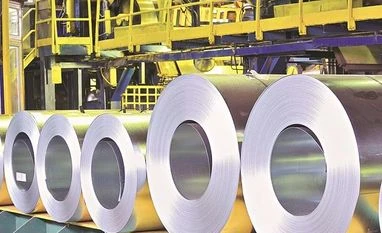In order to establish strong sustainability practices within the natural resources sector, metal start-up Runaya is in talks with Hindalco Industries and state-owned National Aluminium Company Limited (NALCO) to set up an aluminium dross recycling plant on their premises.
“Through the dross processing facility, the manufacturer will be able to recover about 15-20 per cent of additional aluminium which otherwise would have been part of waste material,” Annanya Agarwal, one of the founders of Runaya Group, told Business Standard.
Runaya, founded by brothers Naivedya and Annanya Agarwal, is a start-up led by the next-gen of Vedanta Group. Created in 2017, the Runaya Group has four business verticals of which two are into sustainability and other two in technology enabled manufacturing.
Currently, Vedanta Limited is the only client of Runaya, which is now looking to expand its clientele in the domestic market.
Dross is an otherwise waste product that gets produced during aluminium smelting. At present, there is no solution for its comprehensive disposal even globally, resulting in aluminium dross ending up at landfills.
The metal startup has set up its first aluminium dross recycling plant within Vedanta’s Jharsuguda smelter facility in Odisha. The company is also in the process of setting up another dross-processing unit at Vedanta’s BALCO facility, which is scheduled for commissioning by October.
Apart from enhancing aluminium metal recovery, dross processing technology also helps create value added products that cater to the steel industry in the country.
The company had signed a technology licensing pact with Taha International for aluminium dross processing to recover metal and create value add products.
“The agreement with Taha (International) is such that we pay them a royalty for this technology license,” said Agarwal, without revealing the investment details.
The value-added product created is used between 1-5 kg per tonne of steel. Runaya plans to produce 18,000 tonnes of value-added product for FY22, which it will then take to 24,000 tonnes in FY23.
“The carbon used in our value-added product is different and so for any steel producers to make green steel today or meet their vision carbon neutrality, companies prefer to use Runaya’s value add product,” said Agarwal.
“Steel players are tied up for pick-up of this product and we also are looking at global markets for this product,” Agarwal added.
However, Runaya plans to remain focused on the domestic market for the next 12-18 months.
With an overall investment of around Rs 300 crore since inception in 2017, Runaya has plans to go public in the next five years. Agarwal, however, refrained from divulging more details regarding the company's listing plans.
At Jharsuguda, the company has also set up an innovation centre to understand all sustainability challenges faced by the resources sector. The team is also engaged in scouting for niche technology enabled manufacturing and sustainability that can be brought to India.
The overall team at Runaya comprises 70-75 direct employees. With contract employees included, the workforce count stands at about 1000.
Runaya so far has been largely funded through personal equity, said Agarwal.
Unlock 30+ premium stories daily hand-picked by our editors, across devices on browser and app.
Pick your 5 favourite companies, get a daily email with all news updates on them.
Full access to our intuitive epaper - clip, save, share articles from any device; newspaper archives from 2006.
Preferential invites to Business Standard events.
Curated newsletters on markets, personal finance, policy & politics, start-ups, technology, and more.
)